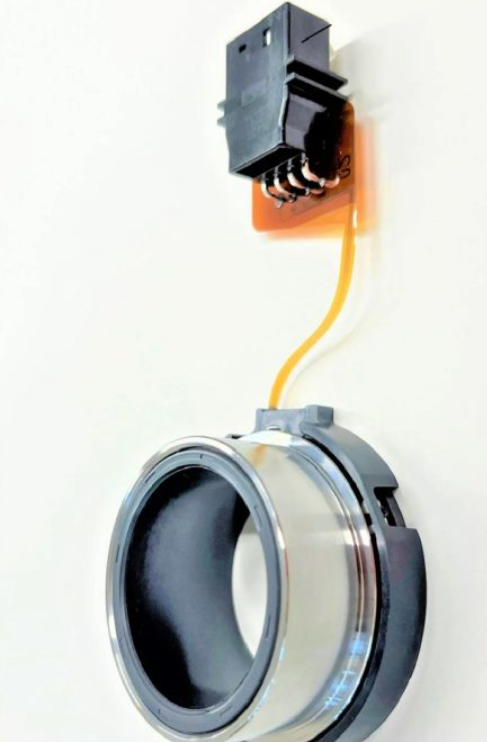NSK Develops Third Generation Torque Sensor

NSK has developed a practical magnetostrictive torque sensor (3rd-generation sensor) for automobiles which enables failure prediction, a comfortable ride, extension of driving mileage and performance improvement thanks to its weight-reducing and space-saving features, while also shortening the development period.
Magnetostrictive torque sensors are a contactless-type sensor used to measure the torque by detecting shaft torsion magnetically. The automobile manufacturer can utilize the torque sensor in vehicles for system control using the torque information detected. For example, NSK has successfully demonstrated the extension of driving mileage by controlling gear-shifting or hydraulic pressure with the torque sensor equipped in the automotive powertrain.
So, many customers expect to use NSK’s torque sensor not only to extend driving mileage but also to offer failure prediction, a comfortable ride, and performance improvement thanks to its weight-reducing and space-saving features, as well as its potential to shorten the period of vehicle development. These benefits are driving an increasing demand for automotive torque sensors, accompanying today’s electrification and automation trends.
Magnetostrictive torque sensors have become commonplace in the drive unit of e-bikes, but they have not been put into practical use in automobiles due to the difficulty of adapting them to survive more severe operating environments.
In order to realize a torque sensor for automotive applications, both the torque sensor and the drive shaft whose torque is detected are required to satisfy the three requirements of reliability, compactness, and low cost simultaneously. For example, since the torque sensor will be installed in a harsh environment involving oil, steel dust, large temperature fluctuations and vibrations, it needs to be robust and reliable to ensure stable measurements. But on the other hand, the sensor must be small and inexpensive, with a simple structure.
In July 2020 NSK developed a non-contact torque sensor for automobiles (first-generation sensor), and then successfully achieved torque detection applicable to the general specifications of automotive driveshafts. However, although the torque sensor featured a simple, slim structure, it needed to be improved in terms of the reliability of actual applications. Accordingly, NSK made continuous improvements in a process of technical communication with customers, receiving their feedback on validation tests in application, and in 2022 developed a second-generation sensor with increased reliability. The new product is the third-generation torque sensor, developed as practical model for automotive applications.
1.The news above mentioned with detailed source are from internet.We are trying our best to assure they are accurate ,timely and safe so as to let bearing users and sellers read more related info.However, it doesn't mean we agree with any point of view referred in above contents and we are not responsible for the authenticity. If you want to publish the news,please note the source and you will be legally responsible for the news published.
2.All news edited and translated by us are specially noted the source"CBCC".
3.For investors,please be cautious for all news.We don't bear any damage brought by late and inaccurate news.
4.If the news we published involves copyright of yours,just let us know.
BRIEF INTRODUCTION
Cnbearing is the No.1 bearing inquiry system and information service in China, dedicated to helping all bearing users and sellers throughout the world.
Cnbearing is supported by China National Bearing Industry Association, whose operation online is charged by China Bearing Unisun Tech. Co., Ltd.
China Bearing Unisun Tech. Co., Ltd owns all the rights. Since 2000, over 3,000 companies have been registered and enjoyed the company' s complete skillful service, which ranking many aspects in bearing industry at home and abroad with the most authority practical devices in China.




